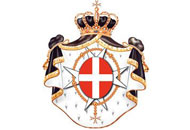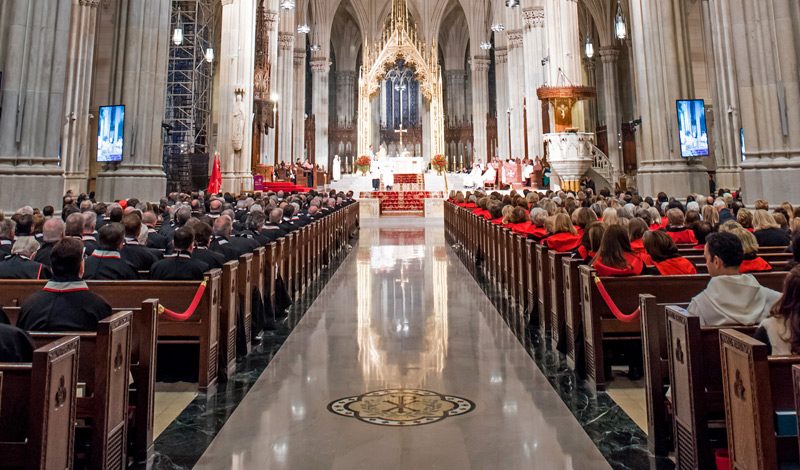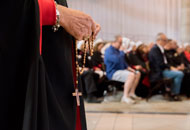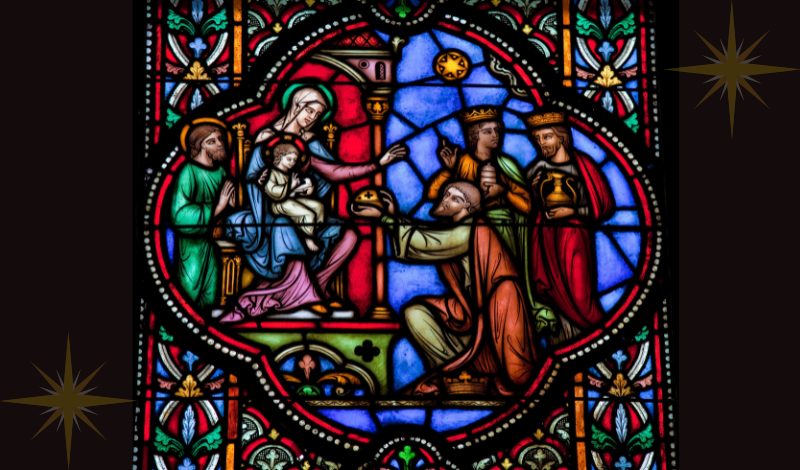By Very Rev. Msgr. Anthony M. Barratt STL, PhD, EV, ChM
It is a strange fact that many people seem to think Christmas is over on the 25th December (or even the 24th!). True, this date marks Christmas Day, but as the famous song “the Twelve Days of Christmas” puts it, the 25th is the first, and certainly not the last, day of Christmas. The Christmas decorations and the Christmas jingles in stores may have long gone but, as Christians, we continue to celebrate the great season of Christmas for several weeks after Christmas Day. During our liturgical Christmas season, we have had many great feast days and events: St. Stephen (the first martyr), St. John (the great Gospel writer), the Holy Innocents (slain by King Herod in a fit of fear and jealousy). We have just had New Year’s Day, or as it is in our calendar, the Solemnity of the Motherhood of Mary (“mother” is, in fact, the oldest title given to our Blessed Mother).
This weekend our festivities continue, as we celebrate “the Epiphany” of the Lord. This strange word comes from the ancient Greek and it really means the appearing or the showing forth of something or someone. Therefore, this weekend, we commemorate the epiphany or the manifestation of Jesus. Not only this, but we also mark the revealing of Jesus to the nations. Jesus Christ is the universal savior: for all times and all places. In our First Reading, the prophet Isaiah, writing many centuries before the birth of Jesus Christ, predicts this coming. Not only that, people will come from afar to see this savior and to experience the light of Christ. The prophet sings of the great joy that this coming will bring; our hearts will (literally) palpitate and overflow! Our psalm takes up this message as we respond, “Lord, every nation on earth will adore you.”
In the Gospel, this coming of the Savior of the nations is powerfully symbolized and realized, in the coming of the three kings, or “magi”, from distant lands. They have indeed travelled a long distance from foreign lands. The giving of their gifts in homage is also very much symbolic. The gifts (gold, frankincense and myrrh) indicate both whom Jesus is and what he has come to do. The well-known hymn, “we three kings” explains all this to us:
Born a King on Bethlehem’s plain
Gold I bring to crown Him again
King for ever, ceasing never
Over us all to reign
Frankincense to offer have I
Incense owns a Deity nigh
Prayer and praising, all men raising
Worship Him, God most high
Myrrh is mine
Its bitter perfume breathes
A life of gathering gloom
Sorrowing, sighing, bleeding, dying
Sealed in the stone cold tomb
The coming of the Savior of the Nations very much poses a choice of how to react. How sad it is that King Herod is unable to see the beautiful truth of what is happening. It would have changed his life and his reign for the better. However, he is full of fear and, perhaps, jealousy or anger. Instead of welcoming the “light of the nations”, he seeks to snuff out this light. By contrast, we see the choice and reaction of the magi: they are filled with joy and they bow down to adore and to give homage. We can imagine them making that long and arduous journey back to their homelands as changed men, because of their encounter with the Lord. The obvious question and challenge here is; are we like King Herod or are we like the magi? How do we react? What choice or choices have we made?
Finally, we realize that today and every day, God manifests Himself and His love to us in many ways: in His Word, in the Eucharist and the sacraments, though prayer and religious experiences that we may have had, and through people and events every day. As members of the Order, I am sure that we have often experienced an encounter with the Lord. Perhaps this has happened through prayer, or a retreat, or in our service of the poor, the needy or those who are sick.
Not only this: we are called to bring that gift of love to others. Yes, we are disciples. We encounter the Lord and we give him praise and worship. However, we are also called to be disciple-makers. We are to be the revelation or epiphany of Jesus to all those whom we meet. It will not be with gifts of gold, frankincense or myrrh (well, probably not!) but instead through our time, our words and our actions. All these can show forth and manifest the love of God. These often-small things can be like a shining star that guides and helps others to discover the very presence of God in their lives. As our New Year has begun, perhaps we can resolve to finds ways to show forth that love of God that we have experienced and that we celebrate to others. As one of the dismissals at the end of Mass says: “Go in peace, glorifying the Lord by your life!”





